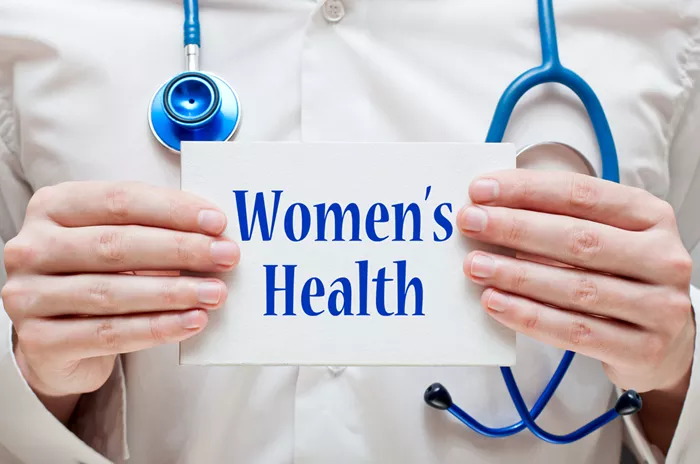Two sisters from Carmarthenshire have opened up about their long and difficult journey to receiving a diagnosis for a condition affecting their ovaries, leaving them feeling unsupported for years.
Annika Thomas, 39, and Sarah Davies, 44, both suffer from polycystic ovary syndrome (PCOS), a hormonal disorder that causes symptoms such as irregular periods, infertility, and mood changes. Their experiences highlight the challenges many women face in getting a diagnosis for PCOS.
Years of Searching for Answers
Annika and Sarah, like many other women with PCOS, found themselves visiting multiple doctors over the years without receiving clear answers. Both experienced symptoms that affected their daily lives, but neither received immediate help.
“It started with my cycles,” Annika recalls. “They were very light, with long gaps between them. Since I didn’t have the more typical PCOS symptoms—being overweight, having excess facial hair, or acne—doctors were hesitant to test for it. I really had to push for a diagnosis.”
Annika, who now has three children, including one born through IVF in 2018, described those years as emotionally draining. “It was such a tough time. You feel so alone, and I was never offered any real support.”
Sarah, her older sister, faced a similar struggle. “For me, infertility was the biggest issue, but I also had acne and constant weight fluctuations. It’s a condition that affects so many aspects of your life.”
The Complexity of PCOS
PCOS affects many bodily functions, including metabolism and ovarian function. Its symptoms can vary, making it difficult for some women to get a timely diagnosis. In addition to irregular periods, it can cause excess body hair, acne, hair loss, and weight gain. In the long term, PCOS sufferers are at higher risk for serious conditions like type 2 diabetes, heart disease, and mental health issues such as depression and anxiety.
“PCOS is incredibly complex,” Sarah said. “Not only does it affect your physical health, but the emotional toll, especially around infertility, is enormous.”
The Growing Awareness and Research
Recent research from Cardiff University shows PCOS is becoming more commonly diagnosed, but it remains a condition that can be hard to identify. A team of experts studied over 120,000 patients and found the disorder was more prevalent in people from lower socio-economic backgrounds and those of Asian descent.
Professor Aled Rees, an endocrinologist at Cardiff University, spoke about the wide-ranging impact of PCOS on patients’ quality of life. “It’s a difficult condition to diagnose because it presents in so many different ways. The irregular periods, weight gain, hair growth, and fertility challenges make it a complex problem. The frustration is that we don’t have a treatment specifically for PCOS, and that means more research is desperately needed.”
Despite greater awareness in recent years, a significant gap still exists in understanding the full extent of PCOS, leaving many women, like Annika and Sarah, to navigate the healthcare system without adequate guidance.
Need for Comprehensive Care and Support
Sarah expressed frustration with the fragmented care she received while trying to manage her symptoms. “There was no joined-up thinking. I had to see different specialists for the different symptoms—infertility, acne, weight gain. It was exhausting and disheartening.”
Women with PCOS often feel overlooked or misdiagnosed, especially since their symptoms don’t always fit the traditional mold of the condition. The financial cost of managing PCOS symptoms is also significant. Cardiff University research estimates that the condition costs the UK £1.2 billion annually due to the need for multiple appointments and specialist consultations.
Government Response
In response to these ongoing challenges, the Welsh government has pledged to address women’s health issues, including PCOS, through a new 10-year women’s health plan. Expected to be unveiled by the end of 2024, this initiative will focus on improving outcomes for women across the country. A clinical lead for women’s health has already been appointed, and a women’s health network has been established to develop and promote the plan.
A Welsh government spokesperson stated that all health boards are required to take proactive measures to improve the healthcare experience for women, addressing any disparities in treatment. In addition, £750,000 has been allocated to research women’s health priorities, with funding to be released by 2025.
The Broader Impact of PCOS
Victoria Vasey, director of the Women’s Equality Network Wales, emphasized the widespread effects of PCOS on women’s health. “It’s not surprising to hear how complex this condition is and how profoundly it affects women. The misdiagnosis or delayed diagnosis often exacerbates the emotional and physical toll. Knowing that certain groups of women are more affected will help us find better solutions.”
PCOS is a condition that affects millions of women worldwide, but its complexity means many still struggle to get the support and care they need. For Annika and Sarah, their long road to diagnosis was fraught with emotional challenges, but they hope sharing their story will help other women feel less alone in their search for answers.
Related articles:
The Drugs for PCOS: Managing Symptoms & Improving Quality of Life
Finding the Best Birth Control for PCOS Management
10 Symptoms of Polycystic Ovary Syndrome (PCOS)


